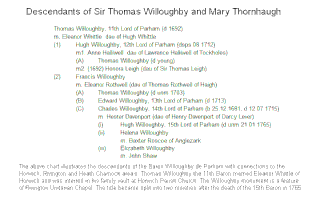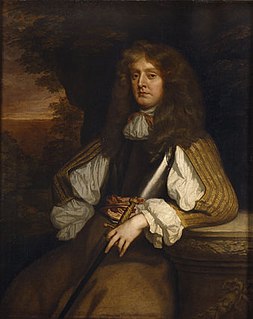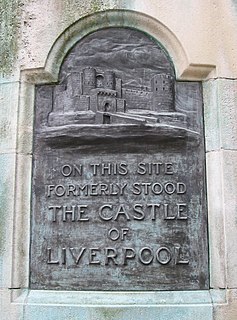Related Research Articles
John Arthur Cunliffe was an English children's book author and television presenter who created the characters of Postman Pat and Rosie and Jim.
Lawrence Cunliffe is a retired British Labour Party politician. He was the Member of Parliament (MP) for Leigh from 1979 to 2001.

Frank Edward Stubbs was an English recipient of the Victoria Cross, the highest and most prestigious award for gallantry in the face of the enemy that can be awarded to British and Commonwealth forces.

Lieutenant-Colonel John Elisha Grimshaw VC was an English recipient of the Victoria Cross, the highest and most prestigious award for gallantry in the face of the enemy that can be awarded to British and Commonwealth forces.
Robert Needham, 2nd Viscount Kilmorey was an English Royalist and supporter of Charles I during the English Civil War.

Sir William Cunliffe Brooks, 1st Baronet, was an English barrister, banker and Conservative politician who sat in the House of Commons between 1869 and 1892.

William Willoughby, 1st Baron Willoughby of Parham was an English nobleman and soldier who in 1547 was made an hereditary peer of the House of Lords.

Wycoller Hall was a late sixteenth-century manor house in the village of Wycoller, Lancashire, England. The hall was the centre of a sizeable estate but subsequently fell into disrepair. The ruins are now listed, and form part of Wycoller Country Park.

Thomas Jollie (1629–1703) was an English Dissenter, a minister ejected from the Church of England for his beliefs.

Thomas Willoughby, 11th Baron Willoughby of Parham (c.1602–1691/92) was an English peer of the House of Lords. He was born in about 1602, son of Sir Thomas Willoughby and Mary Thornhaugh (Thornley), and grandson of Charles Willoughby, 2nd Baron Willoughby of Parham and Lady Margaret Clinton.
William West was an English politician who sat in the House of Commons variously between 1653 and 1660. He fought on the Parliamentary side in the English Civil War.

Richard Legh was an English politician who sat in the House of Commons variously between 1656 and 1678.
Anthony Rous was an English politician who sat in the House of Commons at various times between 1653 and 1660. He was an officer in the Parliamentary army in the English Civil War.
John Sawry was an English politician who sat in the House of Commons in 1653.
Sir Roger Bradshaigh, 1st Baronet was an English politician who sat in the House of Commons from 1660 to 1679.

Thomas Birch was an English landowner, soldier and radical Puritan who fought for Parliament in the Wars of the Three Kingdoms, and sat in the House of Commons at various times between 1649 and 1658.
Mortimer Grimshaw was an English political activist, strike leader and cotton weaver. He briefly attained national fame in the 1850s due to his part in the Preston strike of 1853–54. A large man whose face was marked by smallpox, he was renowned for his oratory, which earned him the nickname of the "Thunderer of Lancashire".
John Cunliffe Pickersgill-Cunliffe was a British banker, who briefly served as Member of Parliament for Bewdley in 1869, representing the Conservative Party.
Richard Fleetwood (1653–1709), of Rossall Hall, Lancashire, was an English politician.
William Cunliffe Lister was a British Whig politician, and barrister.
References
- 1 2 William Duncombe Pink, Alfred B. Beaven The parliamentary representation of Lancashire, (county and borough), 1258-1885, with biographical and genealogical notices of the members, &c. (1889)
- ↑ Willis, Browne (1750). Notitia Parliamentaria, Part II: A Series or Lists of the Representatives in the several Parliaments held from the Reformation 1541, to the Restoration 1660 ... London. pp. 229–239.